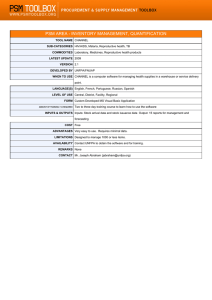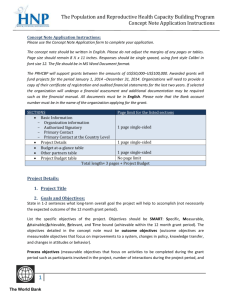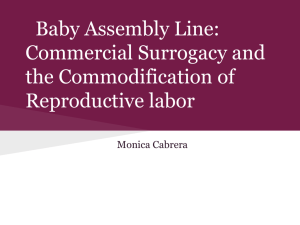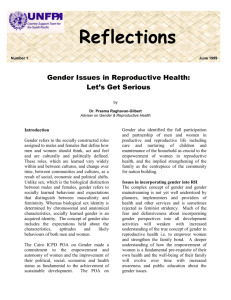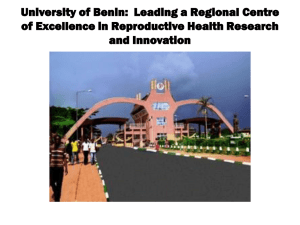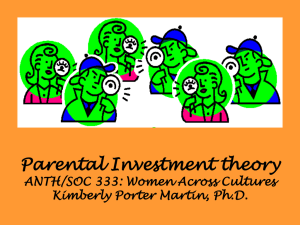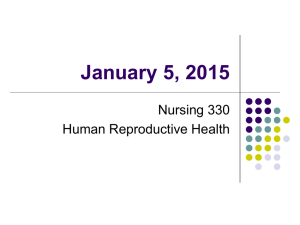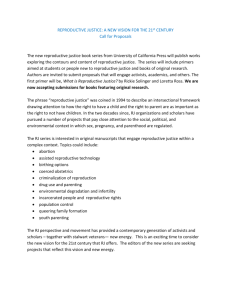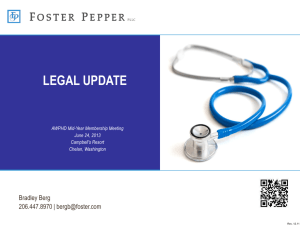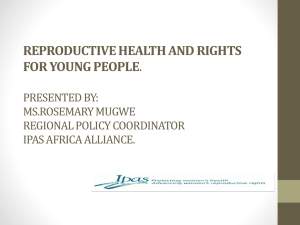PowerPoint
advertisement
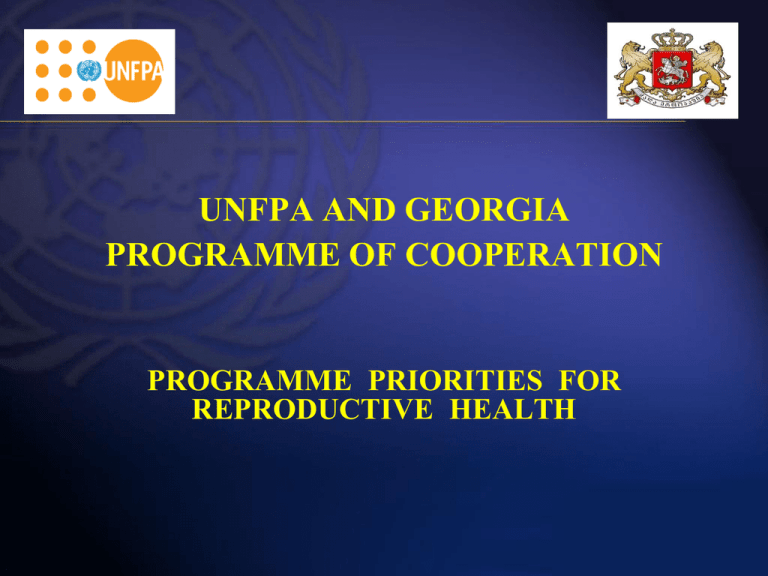
UNFPA AND GEORGIA PROGRAMME OF COOPERATION PROGRAMME PRIORITIES FOR REPRODUCTIVE HEALTH UNFPA cooperation in Georgia is based on: • National priorities as articulated in development strategic documents • MDGs • ICPD • UNDAF • UNFPA Global Strategic Plan (2008-2013) Country Programme components: Reproductive Health Population Development Gender Advocacy and Effective Policy Dialogue • Supporting National RH Council to strengthen coordination, advocacy and resource mobilization efforts; • Supporting MoLHSA to strengthen and implement RH policy framework • Supporting the development of nationally led guidelines and protocols; Advocacy and Effective Policy Dialogue (contd.) • Strengthening partnerships with mass media to mobilize public support for RH issues; • Strengthening partnerships with private sector including insurance companies; • Expanding partnerships and technical knowledge-sharing among technical institutions; Improved access to comprehensive sexual and reproductive health services and information • Partnerships with the government and international organisations to expand the programmes in the field of RH to all administrative regions of Georgia; • Strengthening capacities of reproductive health service providers at all levels to provide high-quality services; • Improving the quality and expanding the range of reproductive health services Improved access to comprehensive sexual and reproductive health services and information (contd.) • Supporting the outreach services of the reproductive health mobile teams in all regions of Georgia; • Supporting educational and behavioral change activities with a special focus on vulnerable populations. Investing in Youth • Supporting the integration of reproductive health education materials into school education curricula; • Expansion of out-of-school educational activities for youth through training activities for peer educators from different groups; Investing in Youth (contd.) • Extra-curricular educational and behaviour change communication activities; • Capacity building of the youth-friendly reproductive health centers in order to provide high-quality services to youth in public and private sectors. Priority Areas for Cooperation: Health Financing • Surveys and research for evidence based decision making • Supporting MDG group of the parliamentarians • Integrated approach to RH services • Private-public partnerships Human Resources • Updating and institutionalization of diploma training curricula, residency programmes and certification in the field of RH • Supporting the trainings of RH service providers at different levels (Family doctors, nurses and midwives, Ob/Gyn) Human Resources (contd.) • On job trainings of RH service providers by RH mobile teams • Exchange programmes for Georgian doctors, radiologists and midwives in the field of family planning, councelling, Emergency Obstetric Care, breast and cervical cancers screening Service Delivery • RH Commodity security • Integrated approach • Equity in access to RH information and services • Quality assurance • Monitoring of implementation of the service guidelines and protocols Investing in Health System • • • • Cost effectiveness of investments Scaling up successful interventions Sustainability Partnerships with new players (private sector, insurance mechanisms)
